~Russia illegally detains 25,000 Kremlin prisoners
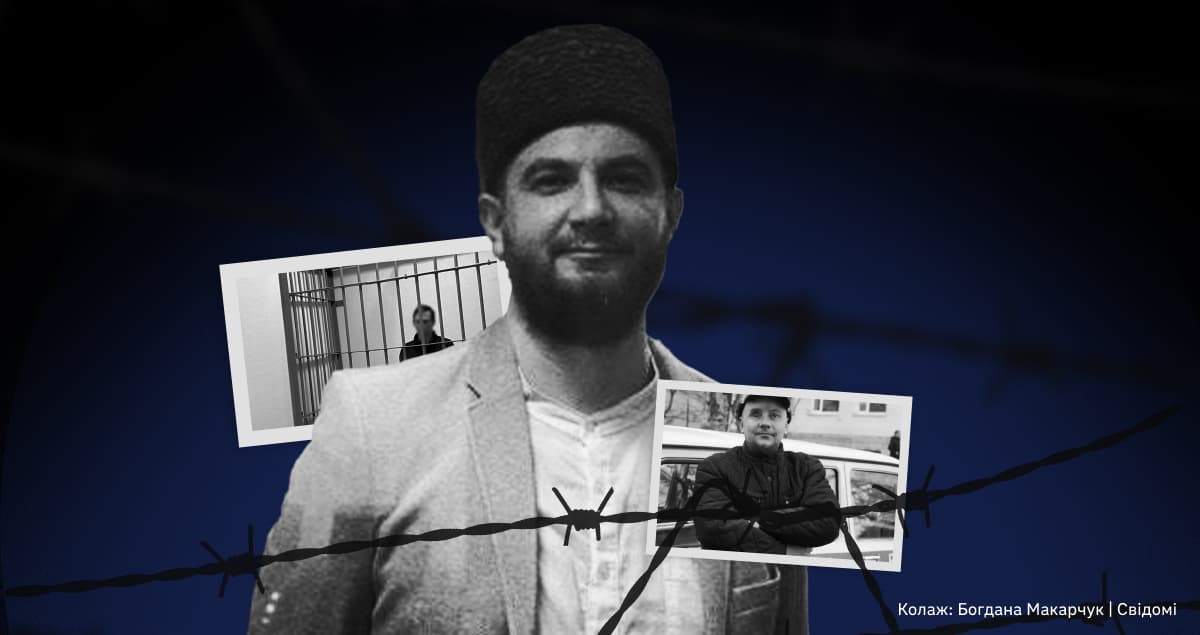
According to the Ukrainian Parliament Commissioner for Human Rights, Dmytro Lubinets, this is the number of civilians abducted by the Russian Federation.
The ZMINA Human Rights Centre has found that at least 67 prisoners require urgent medical care and may die unless they receive it.
During the full-scale invasion, the National Police began investigating the enforced disappearance of 8,800 people.
Russian Children's Ombudsman Maria Lvova-Belova claims Russia has illegally abducted over 700,000 children from Ukraine.
The Media Initiative for Human Rights has identified about one hundred places where abducted civilians are held.
The Mission of the President of Ukraine in the Autonomous Republic of Crimea (Qırım) confirms 218 illegally imprisoned Ukrainian citizens, 132 of whom are Qırımtatarlar.
During the full-scale war, 3,767 Ukrainian citizens, including 167 civilians, were returned to Ukraine.
Four men convicted of “high treason” in occupied Crimea
In December, the so-called “supreme court” of the occupied Crimea (Qırım) issued guilty verdicts for alleged treason against four Crimeans.
The Crimean Human Rights Group and ZMINA report.
A resident of the Leninsky district of the Autonomous Republic of Crimea has been sentenced to 13 years in prison, accused of assisting the Security Service of Ukraine by using hotel surveillance cameras to monitor Russian military activity. The man, born in 1980, was convicted without his first or last name being disclosed by the court.
His sentence also includes 1 year and 6 months of restricted liberty following his imprisonment.
On December 6, the same court sentenced 30-year-old Vladislav Afanasiev, a resident of Feodosia (Kefe), to 15 years in prison on charges of “high treason.” According to the court, Afanasiev allegedly provided Ukrainian special services with the coordinates of Black Sea Fleet ships, which, the Russians claim, could have been used to target the landing ships Novocherkassk and Tsezar Kunikov with missile strikes.
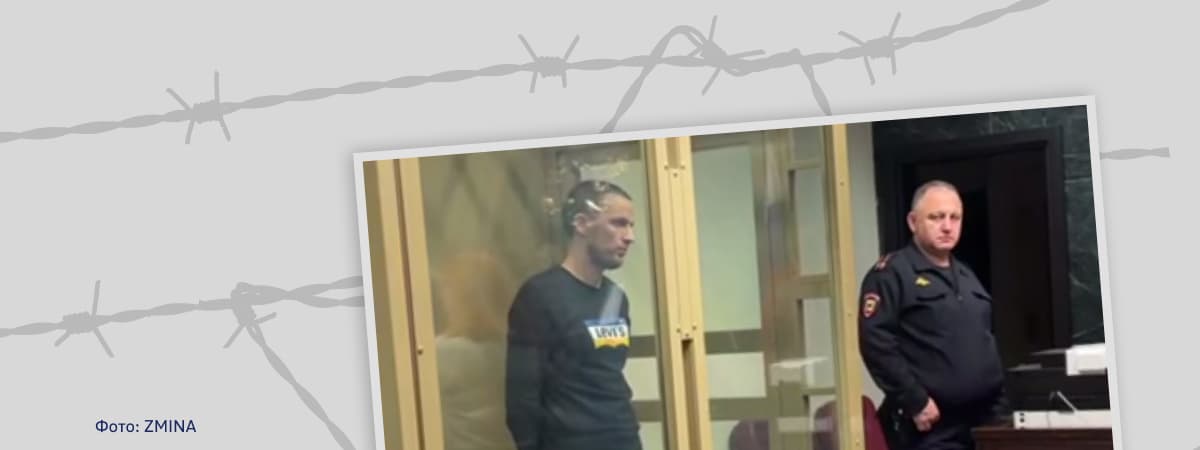
In another case, the so-called “Supreme Court” of Crimea convicted 45-year-old Kerch resident Yurii Viunenko of collaborating with the Security Service of Ukraine. He was accused of transmitting the coordinates of Russian air defense systems and was sentenced to 15 years in a high-security prison.
A similar sentence was handed down to Crimean Lenur Ibrahimov, who was convicted of treason. The court alleged that, between December 2022 and March 2023, Ibrahimov collected and shared information via messenger apps about the movement of Russian military equipment along the Tavryda highway and the location of military facilities on the peninsula. He received a 15-year sentence in a strict regime colony.
Russian Court to Try Ukrainian Prisoner of War Oleksandr Husak for 'Terrorism' in Kursk Region
The Russian Investigative Committee has concluded criminal proceedings against Oleksandr Husak, a soldier of the 82nd Separate Air Assault Brigade of the Ukrainian Air Assault Forces. Husak is accused of committing a terrorist act in the Korenivka district of the Kursk region, an area bordering Ukraine and partially affected by the ongoing conflict.
According to a report by the Investigative Committee of the Russian Federation, Husak allegedly used a large-caliber machine gun on August 28, 2024, to kill three Russian soldiers in the Kursk region. The Russians claim that the soldiers were unarmed, did not resist, and were defenseless at the time of the attack.
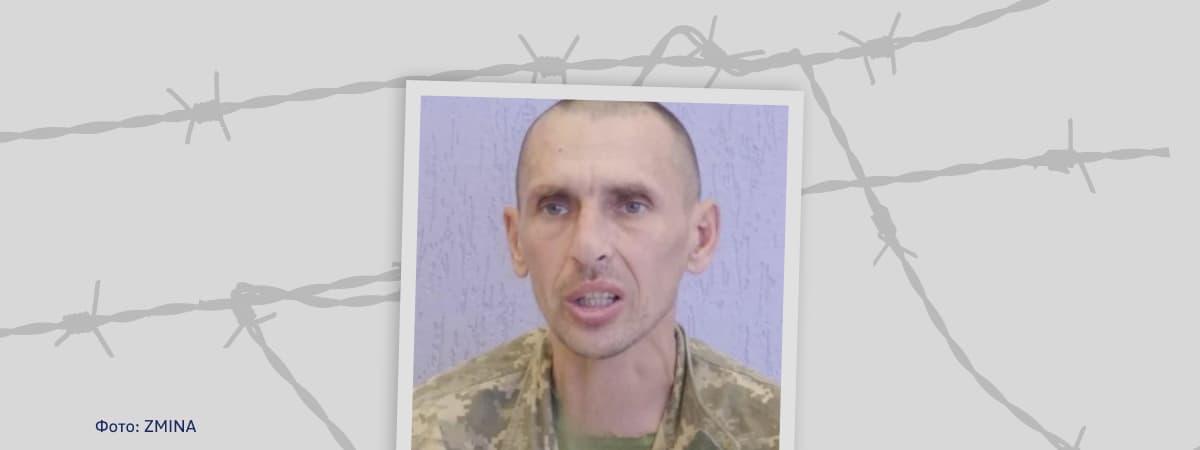
Husak was reportedly captured by Russian forces around September 2024. Following his capture, criminal proceedings were initiated against him on charges of "terrorism" resulting in death. However, Husak’s defenders argue that he is a combatant protected under the Geneva Conventions, which classify him as a prisoner of war. They assert that his prosecution violates international law and that the charges are politically motivated and part of an effort to criminalize Ukrainian soldiers.
Crimean Political Prisoner Oleksandr Sizikov Transferred to Krasnoyarsk Territory
The Federal Penitentiary Service of Russia has transferred Oleksandr Sizikov, a visually impaired Crimean Tatar political prisoner, to the Krasnoyarsk Territory.
The transfer was reported by the media outlet Graty, citing the political prisoner's mother, Olena Sizikova.
Sizikov is a defendant in the so-called “fourth Bakhchisarai case of Hizb ut-Tahrir.” His challenges began in June 2009, when he was struck by a car while riding a bicycle, resulting in severe injuries and total blindness. Following a month-and-a-half rehabilitation course, he was classified as having first-group disability status. For years, his daily needs were supported by fellow villagers and Imam Edem Smailov until the latter was detained by Russia’s Federal Security Service (FSS) in 2020 and charged with “terrorism.”
Since then, Sizikov, with the help of two pensioners, has organized sporadic protests in April 2019 and May 2020 and attended court hearings.
The FSS alleges that Sizikov “founded a Hizb ut-Tahrir terrorist cell” in 2015 and recruited two members, Alim Sufianov and Seiran Khairedinov. As evidence, the authorities cited books associated with Hizb ut-Tahrir found during searches of his friends' homes—even though Sizikov, being blind, could not have read them as they were not printed in Braille.
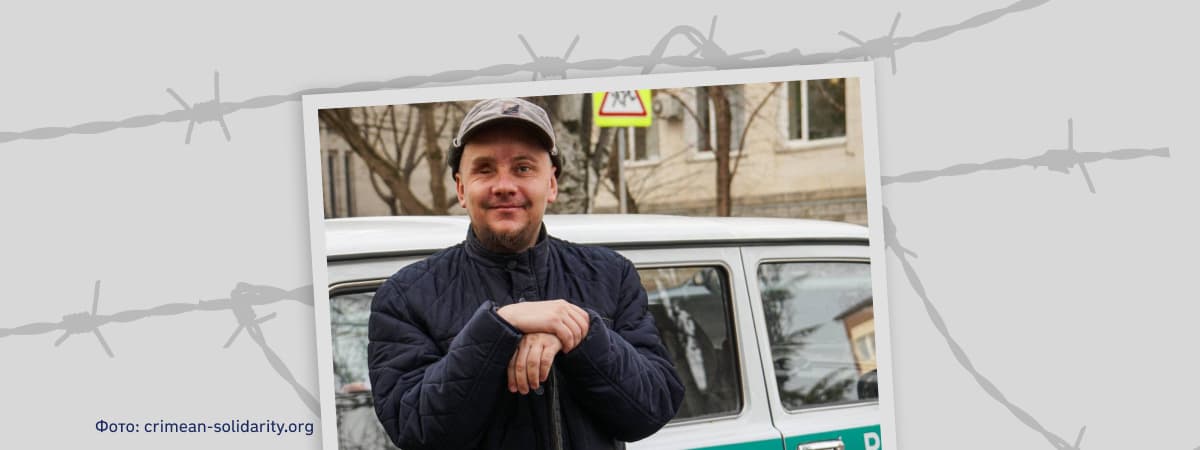
Sizikov was first detained on July 7, 2020, after searches of his friends' homes. That same day, Olga Kuznetsova, an illegal “judge” of the Kyiv District Court in Simferopol, placed him under house arrest as a preventive measure. His house arrest came with strict restrictions, including a ban on correspondence, Internet access, and phone calls, except with his parents or doctors.
On October 14, 2020, Sizikov was sent to the Sevastopol (Aqyar) City Psychiatric Hospital for a month-long forensic psychiatric examination.
On September 14, 2024, occupation police removed Sizikov from his home and transferred him to an undisclosed location.
The day prior, on September 13, a military court of appeal in Vlasikha, Moscow region, sentenced him to 17 years in prison. The security forces reportedly failed to present valid documentation with a wet seal during his arrest.
Hizb ut-Tahrir is an Islamic political party advocating for a global caliphate. In 2003, it was declared a terrorist organization by Russia, leading to widespread persecution of its alleged members. Following Russia's annexation of Crimea in 2014, its legislation was imposed on the peninsula, resulting in the criminalization of Crimean Muslims accused of involvement in Hizb ut-Tahrir. These charges are widely seen as part of broader efforts to suppress dissent among Crimean Tatars, who have resisted the occupation of Crimea.
Journalist Ernes Ametov Loses 10 Kilograms in Penal Colony in Vologda Region
Crimean Tatar journalist Ernes Ametov has reportedly lost 10 kilograms while imprisoned in penal colony No. 12, located in the village of Sheksna, Vologda region. This was revealed by his wife, Eleonora Ametova, during a long visit to the colony, Crimean Solidarity reports. Ametov was transferred to the facility in May 2023.
According to Ametova, her husband requires vitamins to maintain his health. However, the penal colony administration has refused to allow the transfer of vitamins and medications, insisting that Ametov must first be examined by a doctor who would prescribe necessary treatments.
Despite the conditions, Ametov has turned to physical exercise to maintain his health. Additionally, he has taken up sewing and earned a third-category qualification.
“He tries to sew a lot to earn a higher salary, which helps ease the financial burden on our family. It also allows him to buy food, as the meals provided in the colony do not meet Islamic dietary standards. He hardly eats anything [because of this],” Eleonora Ametova stated.
Ernes Ametov was first arrested on October 11, 2017, during a wave of searches targeting Crimean Tatars, which also included the homes of Seiran Saliiev, Marlen Asanov, Timur Ibrahimov, Server Zekiriaiev, Memet Belialov, and Server Mustafaiev. Ametov spent three years in pre-trial detention in Crimea and Rostov-on-Don as his case underwent investigation and trial.
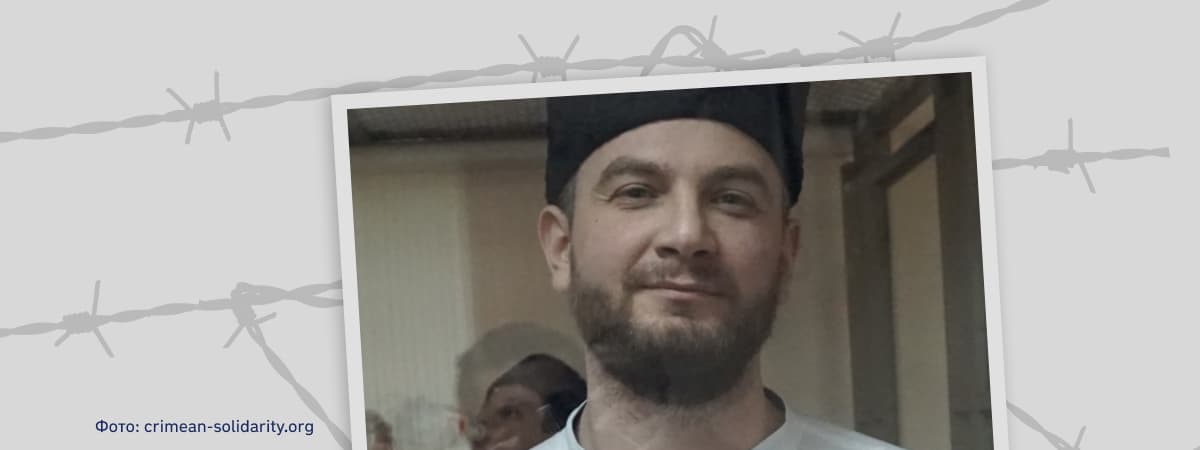
In 2020, Ametov was acquitted due to insufficient evidence and released. This marked the first acquittal in a Hizb ut-Tahrir-related case in both Crimea and Russia. However, in March 2022, the Court of Appeal reviewed the decision of the Southern District Military Court and ordered a retrial.
On April 11, 2022, Ametov voluntarily attended a preliminary hearing for the retrial. Despite his cooperation, Judge Oleksii Magomadov placed him in custody for two months.
The prosecutor's office once again accused Ametov of “participating in a terrorist organization” and an “attempted coup d’état in Crimea.” Ametov denied all charges. During the retrial, the Southern District Military Court overturned his earlier acquittal and sentenced him to 11 years in a strict regime colony. On November 30, 2023, the Court of Appeal in Vlasikha, Moscow Region, upheld the sentence.
Hizb ut-Tahrir is an Islamic political party that advocates for the establishment of a global caliphate. In 2003, Russia designated it as a terrorist organization, leading to widespread persecution of its alleged members. Those accused are charged with “unconstitutional activities” and efforts to create a so-called “world caliphate.”
After Russia's 2014 occupation of Crimea, its legislation was extended to the peninsula, leading to the criminalization of Crimean Muslims accused of involvement in Hizb ut-Tahrir. These charges are widely seen as part of a broader effort to suppress dissent among Crimean Tatars, who oppose the Russian occupation.


